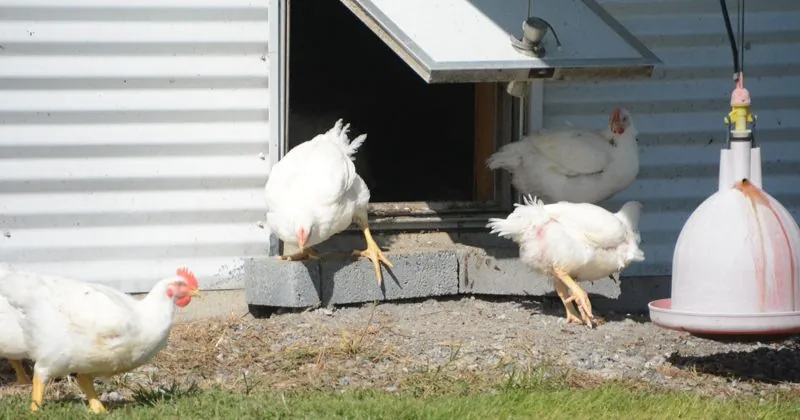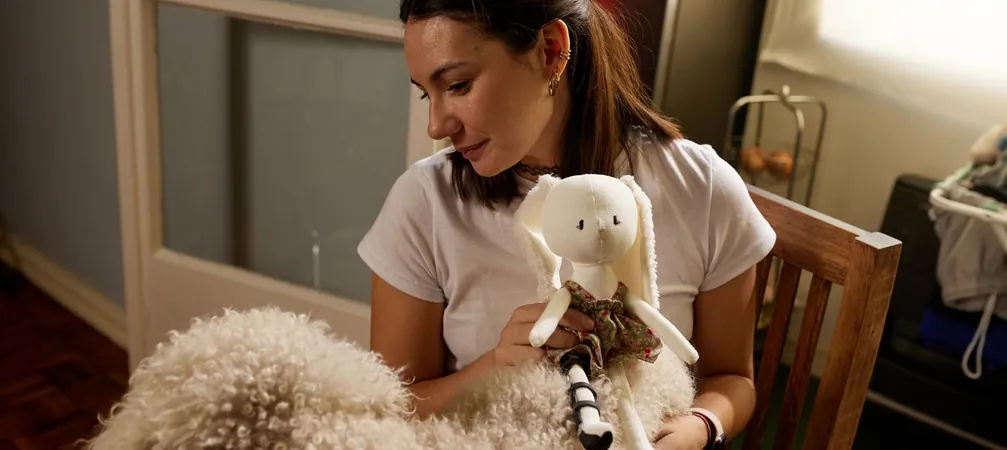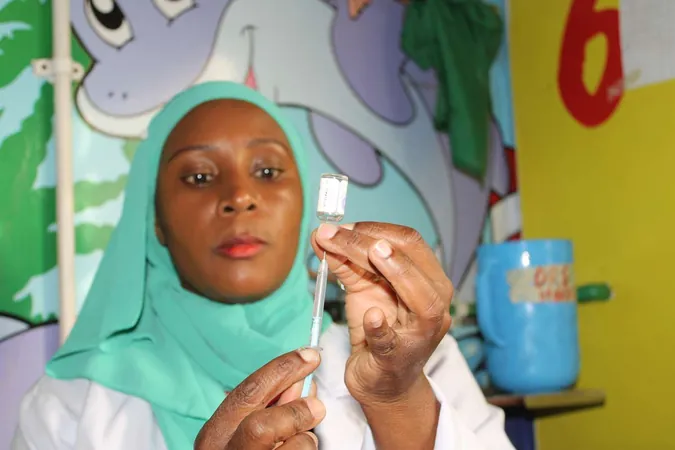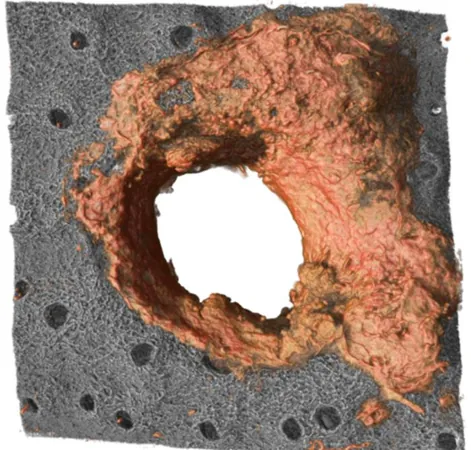
Shocking Discovery: Genetic Mutations in Chickens Linked to Cancer-Causing Virus!
2025-03-26
Author: Wei Ling
Introduction
In a groundbreaking study, researchers are unveiling the alarming effects of Marek's disease in chickens, a highly contagious viral infection that can wreak havoc on poultry farms. Chickens infected by the Marek's disease virus often develop tumors, face paralysis, and ultimately die. The virus can linger in the environment for years, hidden within chicken houses, posing a severe threat to the poultry industry.
The Evolving Virus
In the United States, a vaccine made from a turkey herpesvirus (HVT) has been almost a magic bullet to combat Marek’s disease since the 1970s, but recent findings show that the virus is evolving to evade these defenses. Mark Parcells, a molecular virology expert at the University of Delaware, emphasizes that while the HVT vaccine was historically effective, more aggressive strains of the virus now pose greater risks, replicating faster and causing severe tumors.
Challenges in Nigeria
By the mid-1980s, the U.S. poultry industry adapted by combining the HVT with a stronger European vaccine, and again in the 1990s, another European variant was introduced. However, the situation in Nigeria is quite different—weaving a tale of burgeoning challenges. In Nigeria, Marek’s disease has dramatically affected the poultry sector since the 1960s, exacerbated by the country’s growing poultry industry since the 1980s. Economic consequences are widespread as infection rates continue to skyrocket.
Research on Genetic Variations
Amid concerns about the virus's potential for mutation, Parcells and his research colleagues—including doctoral student Joseph Patria—set out to examine the genetic variations of Marek’s disease virus in Nigeria. Their recent publication in the journal *Viruses* reveals that different strains of the virus exhibit mutations in the oncogene meq, which may allow them to resist vaccination efforts. This research not only highlights the current threats faced by Nigerian poultry but also sheds light on future risks in regions like the Delmarva Peninsula in the U.S., where poultry farming is vital to the economy.
Collaboration and Findings
A pivotal collaboration began when Parcells connected with Luka Jwander, a state poultry veterinarian from Nigeria, at an international conference in France in 2012. After establishing a research partnership, Parcells' team acquired virus samples from Nigerian farms dealing with Marek's disease outbreaks, with special permission from U.S. agricultural authorities.
Through DNA extraction and mutation analysis of the meq gene—critical for the virus's cancer-causing abilities—researchers noted troubling mutations associated with virulent strains found both in Europe and the United States. Notably, their findings indicated that combining the stronger CVI988/Rispens vaccine with the weaker HVT vaccine inadvertently facilitated virus mutations, creating a perfect storm for Marek’s disease to become even more potent.
Implications for the Industry and Human Health
As a testament to the importance of ongoing vaccine research, Patria pointed out that monitoring changes in viral DNA can help predict outbreaks, informing poultry producers about the virulence of circulating strains. This could mean the difference between life and death for countless chickens, depending on how effectively they are vaccinated and managed in hatcheries.
But the implications of this research extend beyond the poultry industry. Understanding the mechanisms behind vaccine-driven viral mutations can provide critical insights that may one day influence human health and vaccination strategies for diseases like Hepatitis B and Human Papillomavirus.
Future Research
Researchers at the University of Delaware are now working with global colleagues to dive deeper into the genetic changes occurring within Marek’s disease virus. The goal is to connect the dots between viral mutations and potential impacts on human diseases, an area that remains unexplored and potentially life-altering.
Conclusion
In conclusion, with the poultry industry facing a new wave of challenges due to Marek's disease, the urgent need for innovative vaccine strategies and research cannot be overstated. The future of poultry farming, the economy it supports, and even broader human health concerns hang in the balance. Stay tuned as this story continues to unfold!





 Brasil (PT)
Brasil (PT)
 Canada (EN)
Canada (EN)
 Chile (ES)
Chile (ES)
 Česko (CS)
Česko (CS)
 대한민국 (KO)
대한민국 (KO)
 España (ES)
España (ES)
 France (FR)
France (FR)
 Hong Kong (EN)
Hong Kong (EN)
 Italia (IT)
Italia (IT)
 日本 (JA)
日本 (JA)
 Magyarország (HU)
Magyarország (HU)
 Norge (NO)
Norge (NO)
 Polska (PL)
Polska (PL)
 Schweiz (DE)
Schweiz (DE)
 Singapore (EN)
Singapore (EN)
 Sverige (SV)
Sverige (SV)
 Suomi (FI)
Suomi (FI)
 Türkiye (TR)
Türkiye (TR)
 الإمارات العربية المتحدة (AR)
الإمارات العربية المتحدة (AR)